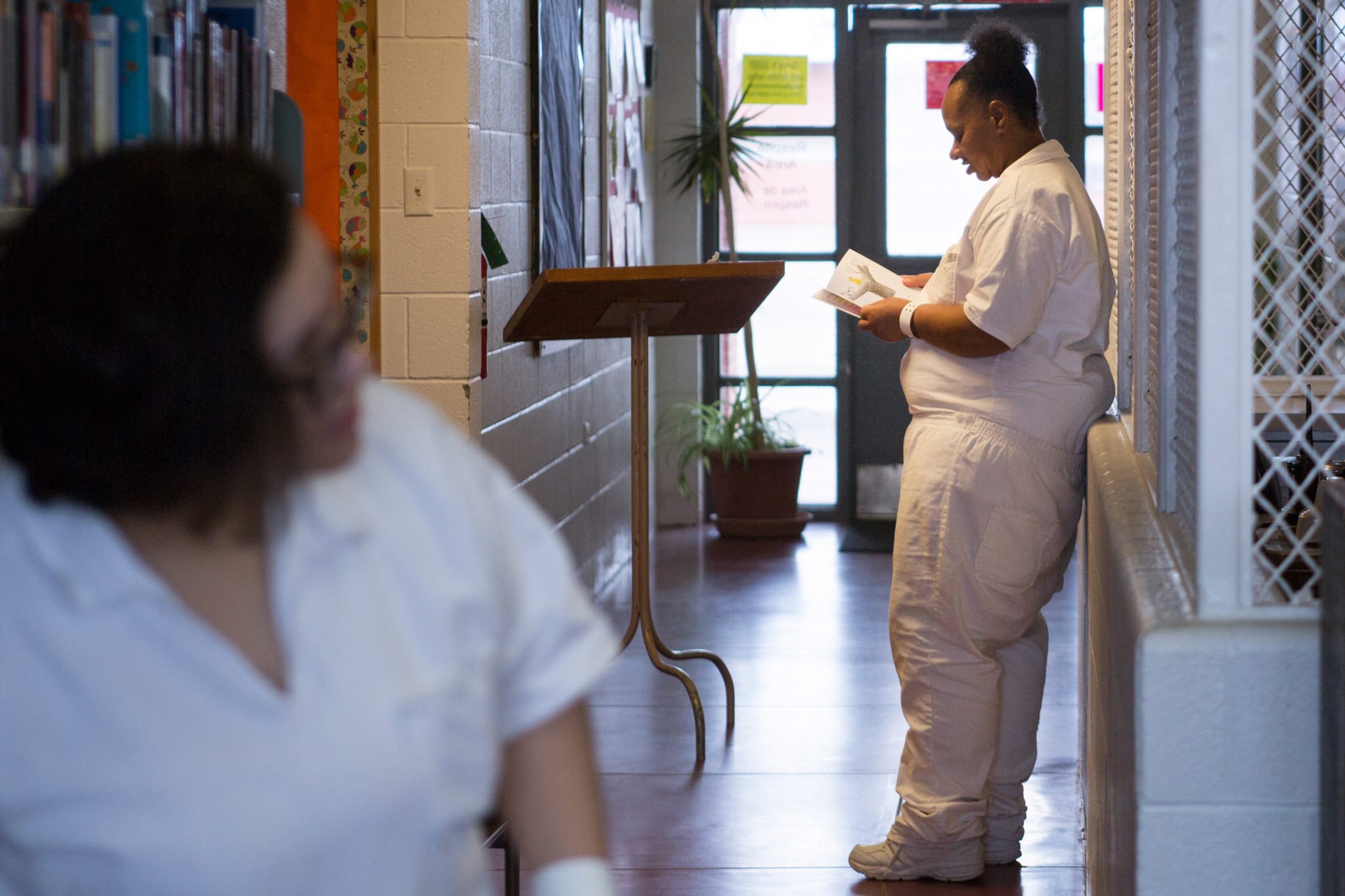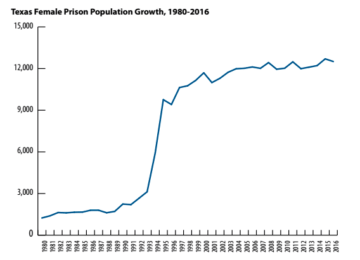
College Degree Options Are Disappearing for Women in Texas Prisons
In Texas, four-year degree programs for imprisoned women are expiring, even as more of them end up in the prison system.

The only bachelor’s degree programs available to women incarcerated in the Texas prison system are ending. By 2020, Texas A&M University-Central says it will completely phase out three four-year degree programs it offers to women at several state prisons in Gatesville, and the university hasn’t been taking new students at the lockups since spring 2017.
Clifton Jones, the school’s executive director of enrollment, blamed the school’s decision on the difficulty of hiring teachers to work with inmates, “limitations in technology” at the prisons and “the inherent complexity of offering academic programs in an incarceration unit.”
The move would widen the yawning gap in educational opportunities available for men and women in the Texas Department of Criminal Justice (TDCJ), leaving women with access to only an associate’s degree. Men can earn up to a master’s behind bars in Texas.
The programs for women are expiring even as more of them end up in the system. As I’ve written before, Texas prisons incarcerated hundreds more women in recent years even as they shed thousands of men.

Ironically, TDCJ cited the three expiring bachelor’s degree programs — one for business administration in management and two for liberal studies — in late April to downplay a report on gender disparities in Texas prisons. The agency failed to mention that the university hadn’t been enrolling new students for a year.
TDCJ vehemently disputed other findings in the report, which was published by the Texas Criminal Justice Coalition. TDCJ spokesperson Jeremy Desel pushed back on the report’s conclusion that women in Texas prisons have access to fewer college degree programs, technical education courses, job certifications and even rehab options compared to men, who make up about 90 percent of the state prison population. At the time, Desel countered that women have access to three different bachelor’s degree programs at the Crane, Lane Murray and Mountain View units in Gatesville — programs that hadn’t been accepting new students for a year.
TAMU-Central Texas is also phasing out bachelor’s degree courses in Gatesville’s Hughes Unit, one of three four-year degree programs currently offered for male inmates.
“I really think the whole system just needs to be evaluated.”
It’s not clear how many students would miss out on those four-year programs once the university lets them lapse. Despite repeated requests for more than two months, TDCJ has been unable to say how many inmates are enrolled in the programs.
This week, Desel said the agency is working to save the programs, but he didn’t provide more detail on what it’s doing to address any of the challenges that made the school plan its exit from the Gatesville prisons in the first place. He also said that the agency hired a new manager in its rehab division to focus on post-secondary education available to Texas prisoners. “Ideally, that additional position will help streamline and make all these programs better,” Desel said.
Lindsey Linder, an attorney who wrote the criminal justice coalition’s report on gender disparities, hopes officials not only add more degree programs for women but also examine how to boost enrollment — which is hard to do if you don’t even track it.
“I really think the whole system just needs to be evaluated,” Linder said. “They need to do a deep dive on what they’re offering, how effective is, and what the barriers to entry are.”


